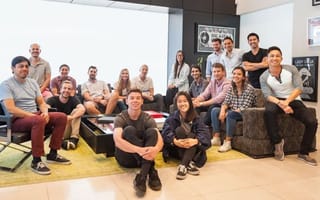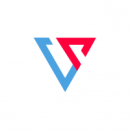Tech employees are comfortable wearing multiple hats. Whether it’s responding to customer support inquiries, scheduling social media posts or building desks from Ikea, opportunities to make an impact outside of one’s designated role are usually plentiful.
Sometimes, making an impact requires more than simply pitching in. For these four tech employees, being a team player meant seizing the initiative and learning new skills to help their companies — and their professional selves — grow.

A native of New Jersey, Zachary Knowles relocated to Los Angeles to join sports betting exchange Smarkets as a software engineer. As the team started work on a new project, they chose to use a new framework to build the app on. The only problem? They all had to learn it first.
How did the team settle on React Native as the framework to learn?
Smarkets is a self-managed environment, so when we were deciding as a team what technology to use to build our mobile sports betting app, SBK, we settled on React Native and we all decided to learn as a team. We chose this framework because we were already a little familiar with JavaScript and developing in React Native would give us the ability to work in one codebase for iOS and Android devices.
What was the process like?
We approached this in a very Smarkets way. We knew that learning a new JavaScript framework is hard, and managing iOS and Android integration is even harder. So we hired an expert team of contractors to teach us React Native and work alongside us while we were just getting our feet wet. They helped us learn all the ins and outs, headaches and heartaches of building a React Native mobile application. Now, we feel like the experts ready to teach our new colleagues as they come on board.
What advice would you give someone looking to build up their skill set?
You have to be your own advocate. You need to figure out what you want to learn, how you want to learn it, and how your company can support you in learning. Make your argument with actual facts and data to the people who can make those decisions — we're lucky that Smarkets encourages engineers to continue learning new technologies.

Senior Product Designer Tiffany Taylor was working for a Bay Area tech company when a personnel move necessitated she take on a new role. By leaning on one of the team’s senior designers, Taylor was able to adopt a veritable suite of skills that help her at Versus Systems today.
What skill did you decide to learn? Why?
A few years ago, I was a UI/UX designer and developer primarily focused on the web side of our product when I was moved to the mobile team to help the lead mobile designer with our Android app rebuild project. I learned how to properly conduct user research and how to hold iterative user testing sessions, which allowed us to verify that the designs we were proposing were the best experience.
What was the process like?
I mostly learned on the job by working with the mobile designer, Yen Ma. She is a very experienced designer and a wonderful mentor and teacher, so she took the time to break down how and why she did research and testing in the past. We did two major rounds of testing: a formal user test session and then a faster “guerilla testing” session. Both tests had similar goals of seeing users interact with our design solution but the methods were very different. We tested a proof-of-concept working app in this scenario, and went to our company’s large HQ in Palo Alto to test the collaboration platform with other employees.
What advice would you give someone looking to build up their skill set?
User research can seem tedious when all you want to do is design, but it’s an important part of a designer’s toolkit. For me, user testing was quite scary at first because I felt nervous interviewing other people, but after a few testing sessions, I became much more confident about it. By learning how to incorporate user research and testing into your design process, your designs will become stronger and more beneficial to your users.

After completing Sidebench’s six-month apprenticeship, which involves a rotation throughout the company to provide meaningful firsthand experience, Cassy Gibson turned to code to help her work as a junior UX designer.
What skill did you decide to learn? Why?
I wanted to learn to code to help me strengthen the structure of my designs. As a UX designer, I always design with users in mind, but part of the process of building a product is communicating with developers. I felt that understanding some basic coding concepts would help me design with development best practices in mind, as well as help me communicate aspects of my designs to developers more clearly.
How do you use this skill in your position at Sidebench?
After taking a few coding bootcamps, my brother helped me get started on a Google Chrome extension. Working with JavaScript on the extension really helped me challenge the features I’m designing daily in the logical ways that a developer would question them. I can think through the specifics and use cases earlier on in the design process to streamline the development handoff.
What advice would you give someone looking to build up their skill set?
The advice given to me by an engineer has changed the way I think about learning in general: “You never have to build from scratch.” Other people have designed great tools, so you have to choose the ones you need, put them together and edit them a bit. It takes the pressure off so it feels more like a puzzle than a big undertaking. I feel like this is true for a lot of learning. You never have to build your knowledge from scratch; it’s about finding the right resources and synthesizing the best parts into a usable skill set.
When Versus Systems decided to move its application from Ruby on Rails to Elixir, software engineer Doug Wright decided that, in order to play a bigger role in the transition, he was going to have to learn Elixir before everyone else. As Wright helped lead the transition, the company decided to bring in another Elixir expert to help teach the rest of the team the Erlang VM-based language that helped WhatsApp get acquired for $19 billion.
What skill did you decide to learn? Why?
Recently I began learning Elixir, a functional programming language that has been gaining in popularity lately. I decided to learn Elixir for several reasons. One, our company had decided to move our Ruby on Rails application over to Elixir for scalability and performance improvements, and I wanted to help with the transition. Two, having learned web development using mostly Ruby and JavaScript, I felt it was time to venture out and start learning a new language.
What was the process like?
I studied a short online course offered by Pragmatic Studios. In addition to this tutorial, I read the Elixir docs and started just playing around with Elixir's syntax and writing small programs to start getting comfortable with the language.
What advice would you give someone looking to build up their skill set?
Start small and have fun. One of the first things I did was jump into the command shell and try using different library functions and writing small programs. Learning a new language can seem daunting and overwhelming, but if you start small and learn the basics, eventually you will build confidence in using the language.







